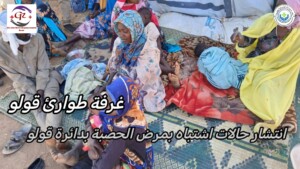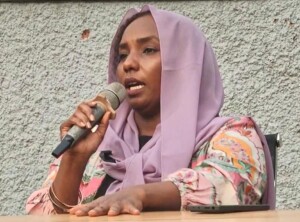20 ‘watery diarrhoea’ cases reported in northern Sudan
The medical director of the Dongola Specialist Hospital in northern Sudan reports that the hospital admitted 20 cases of watery diarrhoea last week.
On Thursday, Dr Moataz El Amin said in a press statement that the hospital received 20 people suffering from acute watery diarrhoea from the El Gaab valley, west of Dongola, where private miners are seeking for gold.
He said that the Dongola health authorities moved to El Gaab to curb the spread of the disease among the miners by water chlorination and distributing “protective pills”.
The medical director of the Dongola Specialist Hospital in northern Sudan reports that the hospital admitted 20 cases of watery diarrhoea last week.
On Thursday, Dr Moataz El Amin said in a press statement that the hospital received 20 people suffering from acute watery diarrhoea from the El Gaab valley, west of Dongola, where private miners are seeking for gold.
He said that the Dongola health authorities moved to El Gaab to curb the spread of the disease among the miners by water chlorination and distributing “protective pills”.
The hospital director added that he does not know the exact number of diarrhoea patients because of the deterioration of the telephone network in the area.
Cholera
Over the past six months, reports about people suffering from “watery diarrhoea” have regularly reached Radio Dabanga, in particular from eastern Sudan and El Gezira in central Sudan. A number of patients have died.
The federal Health Ministry has acknowledged the spread of the “watery diarrhoea epidemic” in eastern Sudan and Khartoum. The Ministry reported in late January that 333 people were suffering from the deadly disease in El Gedaref, Red Sea, and Khartoum states. However, it did not announce clear measures to contain the disease.
According to the Doctors' Executive Committee in January, the results of laboratory tests on acute diarrhoea samples conducted in the Ahmed Gasim Hospital in Khartoum proved cholera. A specialist in infectious diseases as well as several doctors in Sudan “are convinced that it is cholera,” and not, as reported by federal and state governments, an outbreak of acute watery diarrhoea.
Medics have strongly criticised the government's disregard of the spread of cholera. One of them predicted earlier this month that “Infection rates will be growing in the coming rainy season if the Ministry continues to ignore its outbreak.”











 and then
and then